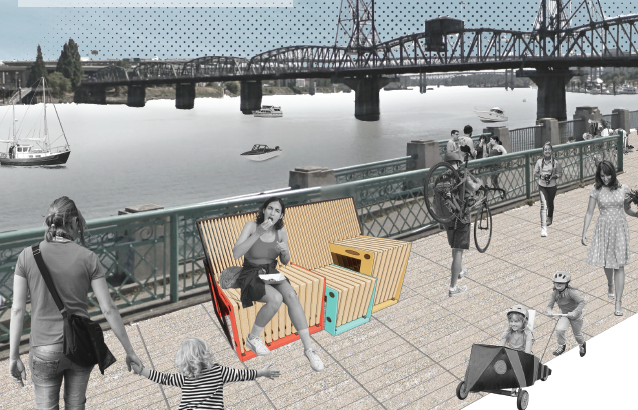
The +Bench
Group effort to design an inclusive bench for Design Museum Street Seats competition, 2018
The +Bench provides endless seating options to meet our diverse needs.
Along with my phenomenal GBD Architects colleagues, I dove into universal design via the Design Museum Street Seats Competition.
Urban furniture is known more for its consistency and durability than its ergonomics or flexibility. All of our wonderful bodies and needs are different. Ideally, a public bench invites a wide range of bodies to use it, so that many can find comfort there. That’s why we designed the flexible +Bench.
I was also honored to write a guest post on the Design Museum Foundation Blog about our collaborative process to develop a flexible, accessible bench. While this post was lost in the Design Museum’s website transfer/upgrade in late 2019, you can still read it by clicking here.
Your sit bones deserve the best.
We worked with Vince Blaney, MSPT of North Lake Physical Therapy to take an anatomically-informed approach to our design. Vince helped us determine elements of a bench needed to be fixed versus flexible to meet the needs of a wide variety of users: plus size folks, tall folks, short folks, kids, elders, and more.
We worked great together!
This design would not have been possible without my GBD Architects colleagues: Stephanie Morales, Tim Dudley, Luke Smith, Duy-Chi Nguyen, Libby Corliss, and Dan Nowell. While I ushered us through the inclusive design process and wrote the story, others constructed models, determined how we could build the bench with a limited budget, and made beautiful renderings.





